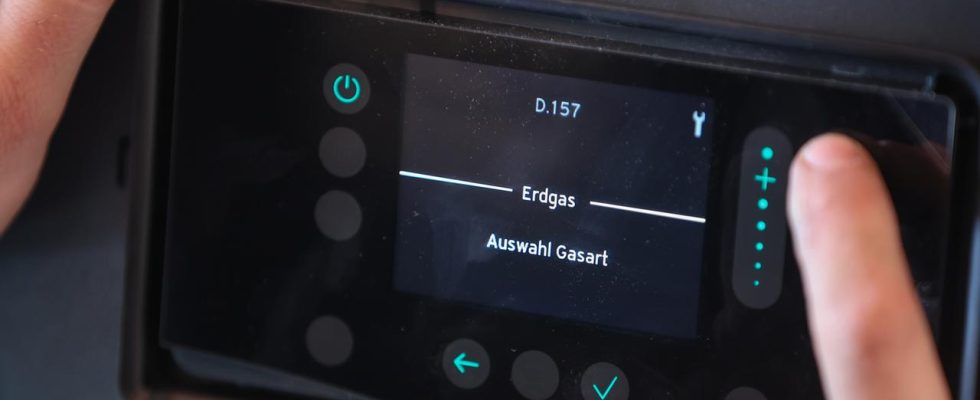A year ago, the EU reacted to the Russian invasion of Ukraine and an impending gas shortage – with an austerity plan that should become mandatory in an emergency. What did he bring?
Last summer, the EU Commission and some member states expected the worst – that Russia would turn off the gas supply to the European Union and that the winter could be harsh. Europe prepared itself for this emergency with the gas emergency plan. First of all, he gives the EU countries voluntary targets for saving energy: they should reduce their gas consumption by a total of 15 percent compared to the average for the past five years. According to the Commission’s calculations, this corresponds to around 45 billion cubic meters of gas.
How the member states achieve this is up to them: switch to renewable energies, take shorter showers, cool and heat less. In the event of a supply bottleneck, the savings target can be made mandatory. For this to happen, at least five governments have to sound the alarm and most other EU countries have to go along with it.
The weather helped
It hasn’t gotten that far. Although Moscow reduced gas supplies to the EU, temperatures last winter remained comparatively mild. This is another reason why the EU was able to exceed its savings targets: between August and January of this year, gas consumption fell by 19 percent.
According to the Brussels think tank Bruegel, industry was responsible for the lion’s share of the savings last summer. In the autumn, households reduced their demand significantly, partly because of the above-average warm weather. In the first quarter of this year, gas demand in the EU was 18 percent below the average for 2019-2021, according to Bruegel.
According to the Federal Network Agency, the consumption figures in Germany are at a similar level. Federal Economics Minister Robert Habeck declared last year that one was particularly dependent on Russian gas supplies and therefore had to save more than the EU average.
Deceptive subsidies prevented
Bruegel energy expert Georg Zachmann considers the emergency plan to be a crucial tool to deal with the gas crisis and protect the internal market:
Without the demand reduction obligation, individual Member States might have generously given their gas customers money to allow households and their industry to continue buying increasingly expensive gas on the internal market. Ultimately, national subsidies would have been used to empty gas storage facilities in other countries. Even at the mere semblance of such a development, the domestic market would quickly have collapsed.
The EU argued for weeks last summer about the details of the regulation. With the emergency plan that was finally implemented, the EU sent messages both internally and externally: it signaled to the Kremlin that it was also prepared for a complete gas supply freeze.
At the same time, the member states were urged to make themselves independent of Russia more quickly, apparently with success: According to a Commission spokesman, gas deliveries via pipelines, which accounted for about half of imports into the EU before the war against Ukraine, have fallen to eight percent.
The emergency plan also applies to the coming winter
Germany, for example, bought a lot of natural gas from its EU neighbors France, Belgium and the Netherlands. In addition, coal-fired power plants went back online to save gas. In public buildings, little-used areas were not heated.
France’s government urged authorities to cool and heat less. Shops had to close their doors when the air conditioning or heating was on. Italy and Spain also made specifications for cooling and heating in public buildings.
exceptions in key industries
The gas consumption of critical industries, for example for the production of food or fertilizers, is not counted towards the savings target. There are also exceptions when states need a lot of gas to generate electricity or when they supply it to EU partners. In acute emergencies, member states should help each other out. The island states of Malta, Cyprus and Ireland, which are not connected to the European gas pipeline network, are completely exempt from the regulation.
In the spring, the EU governments decided to extend the savings targets by another year. They are now setting themselves the voluntary target of reducing their gas demand by a further 15 percent by the end of March 2024.
The EU can also sound the alarm in the future and make the savings target mandatory. But the hope remains that the community has a plan in place for an emergency that still does not occur.

